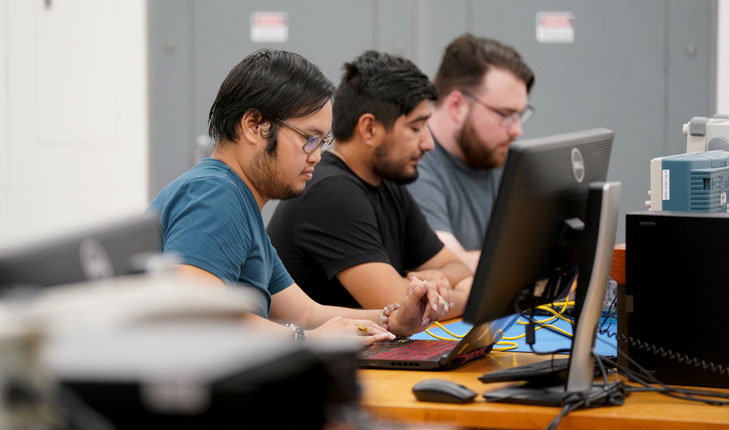To address the concern of historic groundwater overdraft in the San Joaquin Valley, the California Water Institute at Fresno State, with assistance from students and faculty, conducted a feasibility study to explore the potential for groundwater recharge within disadvantaged communities. The study, carried out in 2023, focused on improving water quantity in communities heavily reliant on groundwater for drinking water.
“This study brought real-world challenges to the classroom for students and marked a significant step toward addressing the critical issue of groundwater overdraft in the San Joaquin Valley,” said Laura Ramos, interim director of the California Water Institute – Research and Education Division.
Historically, groundwater in the region has been overdrafted for agricultural, residential, and industrial purposes, leading to severe consequences for communities facing the depletion of groundwater quality and quantity. Disadvantaged communities dependent on domestic wells have endured the brunt of these negative effects.
Through geospatial analysis, potential sites for groundwater recharge were identified within the vicinity of disadvantaged communities in the Fresno County region currently experiencing groundwater quality and quantity issues. The analysis identified four potential locations for the design and construction of recharge basins near or in the cities of Kerman, Raisin City, Caruthers and Laton.
This was followed by extensive data gathering and analysis by two groups of civil engineering students who determined the representative sites’ financial and technical feasibility. Each site underwent a thorough evaluation of existing conditions including groundwater quality, soil conditions, current land use, availability of surface water supply, recharge potential, construction costs, ease of maintenance and operation and community benefit.
“Giving students these kinds of hands-on experiences while also identifying long-term climate change adaptation strategies for sustainable groundwater levels align with our division’s goals,” Ramos said. “The identification of potential recharge sites supplies one more tool toward providing sustainable water management solutions for disadvantaged communities.”
If further investigated, the positive implications of this study could be monumental for disadvantaged communities in the San Joaquin Valley that are facing a reduction in groundwater levels.
In addition to working with Fresno State students and faculty, the feasibility study was conducted in collaboration with several local agencies.
“Projects like these are not possible without financial support, so we are very thankful to Bank of California, formally Pacific Western Bank, for seeing the advantage of providing this experience to students and the potential benefit to communities in Fresno County,” Ramos added.
(Story by Julissa Zavala, California Water Institute)





